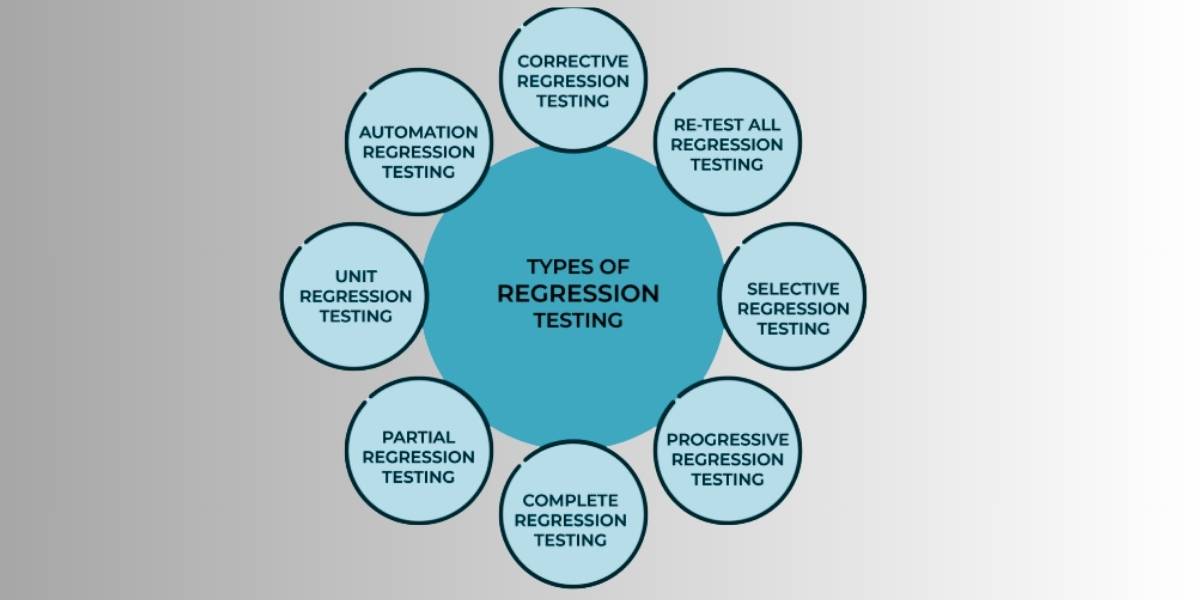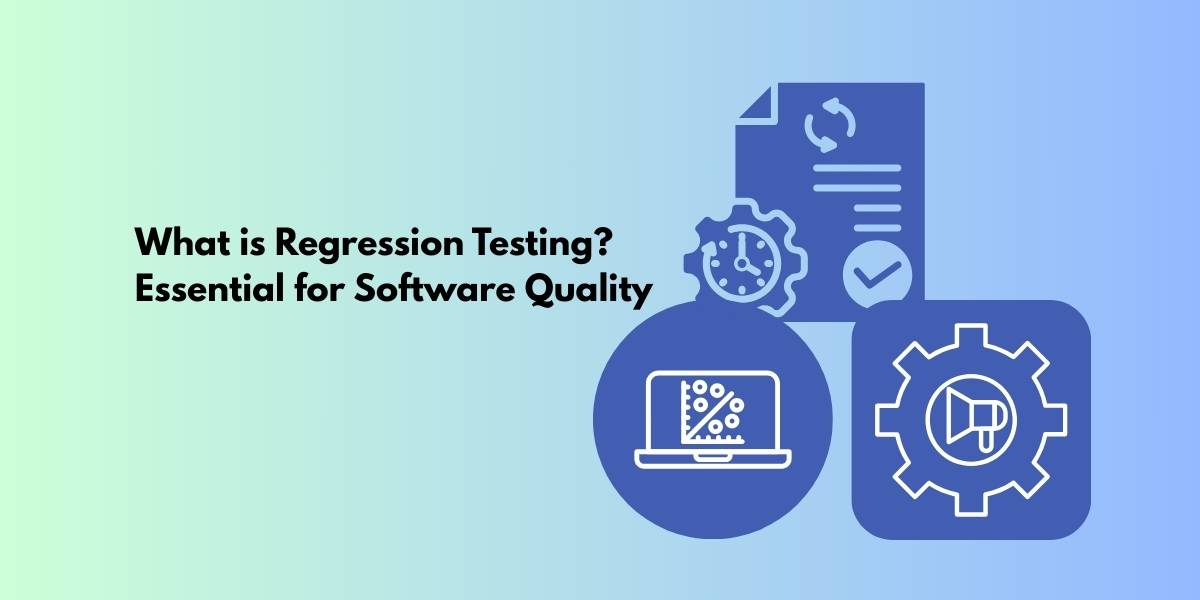AI POWERED, CODELESS TESTING TOOLS
Table of Contents
ToggleWhat is Regression Testing? Essential for Software Quality
In the fast-paced world of software development, ensuring every update or new feature doesn’t compromise existing functionality is crucial. This is where regression testing plays a vital role. Suppose you’ve ever wondered “What is Regression Testing?”. In that case, you’re about to dive into a comprehensive guide that explains not only its importance but also how platforms like AssureQA are revolutionizing the way we conduct regression testing for software.
Understanding What is Regression Testing
Regression testing is a type of software testing that ensures that new code changes have not adversely affected the existing functionalities of an application. Every time developers fix bugs, update features, or integrate new modules, there’s a risk that these changes could break something that was previously working. Regression testing acts as a safety net.
In simple terms, when software evolves, regression testing ensures stability and reliability by re-running previously completed tests to verify that previously developed and tested software still performs correctly after a change.

Why is Regression Testing Important?
In modern software development, especially in agile environments where updates are frequent, regression testing for software is critical for several reasons:
Detects Unintended Consequences: Changes in one part of the code can unintentionally affect other parts. Regression testing helps catch these issues early.
Ensures Quality with Speed: In continuous integration and deployment (CI/CD) pipelines, regression tests enable teams to deploy quickly while maintaining software quality.
Builds Customer Confidence: Delivering stable software consistently boosts user satisfaction and trust.
Saves Time and Cost: Identifying issues before release prevents costly fixes post-launch.
Key Scenarios Where Regression Testing is Necessary
Understanding what is regression testing also involves knowing when to perform it. Here are typical scenarios where it’s essential:
- After Bug Fixes: To ensure that the fix hasn’t disrupted other areas.
- Post Feature Enhancements: To verify that new features don’t interfere with existing functionality.
- Performance Improvements: Even minor tweaks can cause regressions, especially in large systems.
- System Integration: When integrating with third-party systems, regressions are common.
- During Code Refactoring: Cleanups and restructuring can cause unpredictable bugs.
Types of Regression Testing
Regression testing isn’t a one-size-fits-all process. Depending on the testing goals, different types are used:
1. Unit Regression Testing
Focuses on individual units or modules. Conducted in isolation during the development phase.
2. Partial Regression Testing
Tests modules that are directly related to changes made in the code.
3. Complete Regression Testing
Performs a full-scale test of the entire application, ideal before major releases.
4. Corrective Regression Testing
Used when no changes are made to the existing application environment, ensuring tests still work as expected.
5. Progressive Regression Testing
Applied when new test cases are added for new features and ensure both old and new functionalities are intact.
Manual vs Automated Regression Testing
While manual testing can be effective in smaller projects, it becomes impractical for large-scale applications due to the time and effort involved. This is where automated regression testing shines.
Benefits of Automated Regression Testing:
- Faster Execution: Automate once and reuse test scripts across cycles.
- Higher Accuracy: Eliminates human errors common in repetitive testing.
- Improved Test Coverage: Easily include a broad range of test cases.
- Better Resource Allocation: Free up testers for exploratory or creative testing tasks.
Platforms like AssureQA provide an intuitive and robust environment to automate regression tests, streamline workflows, and deliver better software faster.
Regression Testing with AssureQA: The Smarter Way
When it comes to choosing the best tool for regression testing for software, AssureQA leads the way. It combines power, simplicity, and flexibility to meet the demands of modern QA teams.
Why Choose AssureQA for Regression Testing?
Smart Test Automation: AssureQA offers intelligent automation capabilities that help you build reliable regression test suites with ease.
Cross-Platform Support: Test across web, mobile, and APIs to ensure consistent performance.
CI/CD Integration: Easily integrates with Jenkins, GitHub, Bitbucket, and other CI/CD tools.
Custom Test Scheduling: Automate test execution on a schedule or after every code deployment.
Detailed Reporting & Dashboards: Gain real-time insights with easy-to-read reports and analytics.
Use Case Example:
A SaaS company uses AssureQA to manage a complex web application updated weekly. Before implementing AssureQA, manual regression testing delayed releases by days. After switching, test cycles were completed in hours, and release confidence improved dramatically.
Best Practices for Effective Regression Testing
To make the most of your regression testing efforts, follow these best practices:
1. Maintain a Clear Test Case Repository
Keep test cases updated, version-controlled, and categorized based on modules.
2. Prioritize Test Cases
Focus on high-risk, critical functionalities and frequently used areas first.
3. Automate Whenever Possible
Use tools like AssureQA to automate regression tests and reduce human effort.
4. Use Version Control Systems
Track changes to code and tests to identify regression causes faster.
5. Regularly Update Test Suites
Outdated test cases can mislead results. Ensure test cases evolve with the application.
6. Monitor and Analyze Results
Review regression test reports to identify trends, common breakages, and areas of improvement.
Common Challenges in Regression Testing
While regression testing is invaluable, it comes with challenges:
- Test Suite Bloat: Over time, the test suite can become too large to execute efficiently.
- False Positives/Negatives: Improperly written test cases can lead to misleading results.
- Time Constraints: Tight release cycles may pressure teams to skip regression testing.
- Auto-grouping of Tool Compatibility: Not all tools support complex integrations or custom workflows.failed tests
How AssureQA Overcomes These Challenges:
AssureQA simplifies test management with smart categorization, automated prioritization, and fast execution. Its AI-powered insights help identify redundant test cases and improve overall test accuracy.
Future of Regression Testing in Agile and DevOps
As Agile and DevOps practices continue to dominate software development, regression testing for software must evolve to keep pace.
Shift-Left Testing: Testing earlier in the development cycle means faster feedback and less expensive bug fixes.
AI in Regression Testing: AI and ML are being integrated to predict high-risk areas and suggest optimal test cases.
TestOps Integration: Testing as a part of operations ensures continuous quality in production.
AssureQA embraces this future by offering scalable, AI-enhanced regression testing capabilities that align with modern software delivery pipelines.

Final Thoughts
Understanding what is regression testing is key to building robust, error-free software. It’s not just a QA activity—it’s a critical component of the development process that ensures software stability and user satisfaction.
Whether you’re a startup or an enterprise, incorporating effective regression testing for software can make the difference between a successful product and a failed launch. And when it comes to efficient, automated, and intelligent regression testing, AssureQA is the platform trusted by forward-thinking QA teams around the world.
Start your journey to better software quality with AssureQA today.
FAQs
Regression testing is the process of re-running functional and non-functional tests to ensure that recent code changes haven’t affected the existing functionality of an application.
It ensures that new features or bug fixes do not introduce new errors, maintaining the stability and reliability of the software across updates.
AssureQA automates regression testing using AI-driven capabilities, enabling quick and accurate test execution with minimal manual intervention—across multiple environments.
Yes, regression testing is ideal for automation. Tools like AssureQA streamline the process, increase efficiency, and reduce the risk of human error.
Key types include Unit Regression, Partial Regression, Complete Regression, Selective Regression, Progressive Regression, and Corrective Regression Testing.
It should be conducted after every code update, bug fix, or new feature implementation to ensure continued functionality and software stability.





